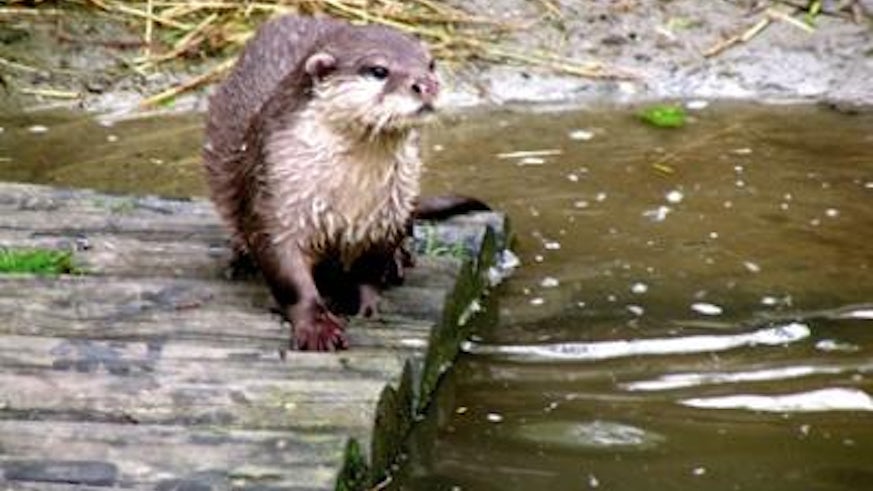How healthy are Scotland’s otters?
14 February 2014

Scotland's otters are for the first time in 20 years to be included in a UK-wide study aimed at giving scientists an insight into the chemical pollutants threatening their health and the health of their habitat.
The University's Otter Project has been monitoring the health of otters found dead in England and Wales since the early 90s, and now thanks to funding from the International Otter Survival Fund (IOSF), otters from Scotland will also be examined.
Research has to date given an insight into many aspects of otters' life history and biology, including diet, population genetics, their use of scent to communicate, the spread of disease and their exposure to environmental pollution.
Otters found dead – often as road-kill, but sometimes due to disease or starvation – are reported by members of the public, and sent to researchers in Cardiff, who conduct a full post mortem examination. Otters are often secretive in their behaviour, so direct observation in the wild is extremely challenging. By studying otters found dead, scientists can gather a wide range of information about them that would otherwise be unavailable.
"By expanding our research to Scotland, our research now encompasses the whole range of the otter in mainland Britain, and will be able to develop a much clearer understanding of the threats faced by otters, and the challenge faced by all of us to maintain a healthy environment," said lead researcher from the Otter Project, Dr Elizabeth Chadwick, a project manager in the School of Biosciences.
"We are delighted to be working with Cardiff University on this project. IOSF has been concerned for a long time that we have had no information on the health of Scottish otters since the late 1990s. Cardiff University has already found out that otters in England and Wales are not living as long as in parts of mainland Europe, but we have no idea about the situation here. We can't afford to be complacent about the health of our otters or the environment and we look forward to developing this work further."
Sitting atop the freshwater food chain, otters often accumulate chemicals that contaminate the environment – making otters a useful 'sentinel' of environmental pollution that is relevant to all wildlife and human health.
Research findings are used to inform conservationists and policy makers – as well as being shared with the general public who report crucial sightings.
Otter populations in Britain have made an excellent recovery since pollution driven declines in the 1950s-70s, but remain vulnerable to a wide range of threats. They seem to die younger than their counterparts on the continent; key prey species such as eels have suffered major population crashes, and research has raised serious questions about chemical threats to reproductive health.
Studies have looked at several indicators of male reproductive health and found several signs of change that give cause for concern: shrinking reproductive organs; an increase in cysts on the tubes that carry sperm during reproduction, and an increase in undescended testicles (cryptorchidism).
To report a dead otter in England, Wales or Scotland, please see the procedures detailed on the Cardiff University Otter Project website.